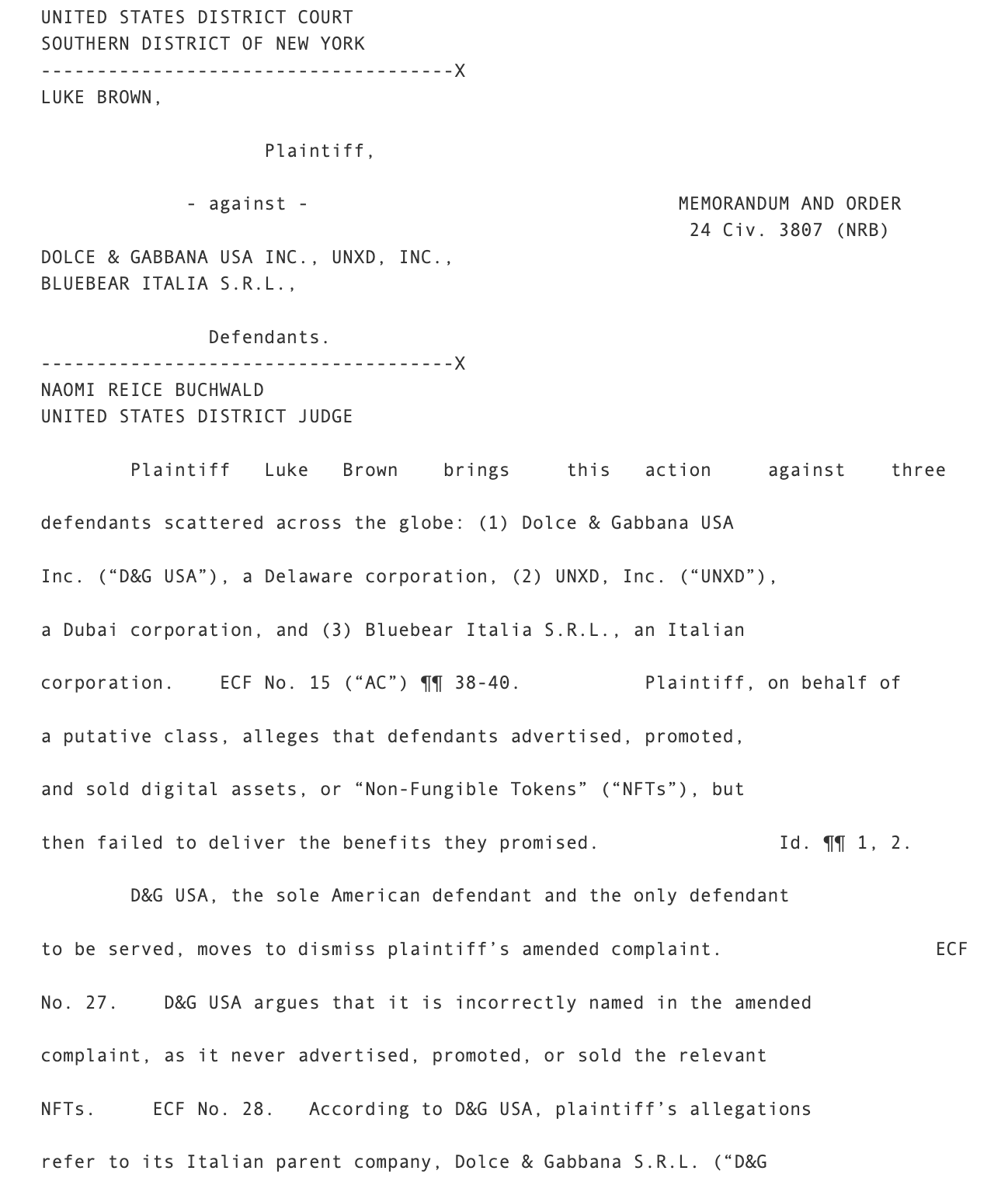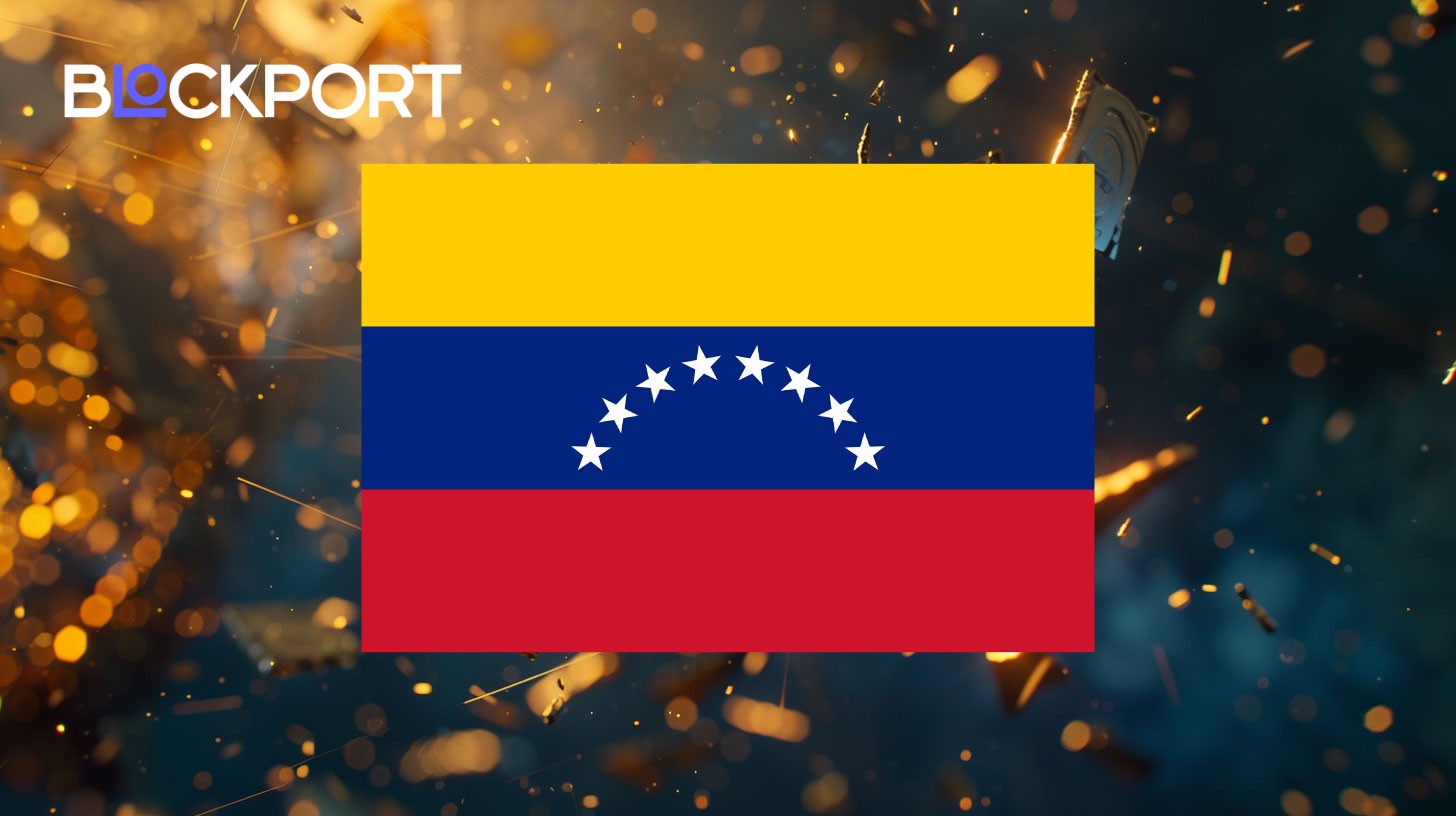Federal Judge Dismisses $25M NFT Lawsuit Against Dolce & Gabbana USA

Dolce & Gabbana USA escapes NFT lawsuit after judge finds no evidence U.S. unit was involved in $25M DGFamily project that failed to deliver promised benefits.
A federal judge in New York dismissed a class-action lawsuit against Dolce & Gabbana USA on July 11, 2025. Judge Naomi Reice Buchwald ruled that the American subsidiary cannot be held responsible for problems with the Italian parent company’s NFT project.
NFT buyers sued after claiming Dolce & Gabbana abandoned promised benefits from its DGFamily collection while keeping over $25 million from sales. The buyers said they never received the perks they were promised when they bought the digital collectibles.
The lawsuit originally targeted four companies: Dolce & Gabbana’s Italian parent company, the U.S. subsidiary, Dubai-based marketplace UNXD Inc., and Italy’s Bluebear Italia SRL. However, only the U.S. division was actually served with legal papers.

Buyers claimed the DGFamily project, launched in 2022, promised quarterly benefits over two years. These included digital clothing for the virtual world Decentraland, physical clothing items, and access to live events. Many of these rewards were never delivered, according to the complaint.
The U.S. subsidiary argued in January 2025 that it had no involvement in creating, marketing, or managing the NFT project. The company said all activities came from the Italian parent company and that it never promoted any NFTs or entered joint ventures related to the project.
Judge Buchwald agreed with this defense. She found that the lawsuit failed to show specific examples of how the U.S. subsidiary participated in the NFT project. The complaint referred to both the U.S. and Italian companies simply as “Dolce & Gabbana,” without clearly separating the roles or actions of each.
While the plaintiffs pointed to overlapping executives, including a shared CEO and marketing staff, Judge Buchwald said this was not enough to show that the parent company “completely dominated” the U.S. entity. She added that the lawsuit was “plainly insufficient” and expressed doubt that any further amendment would meet legal standards.
The ruling leaves the case’s future uncertain. The U.S. subsidiary was the only American defendant, and the other three companies named in the lawsuit have not been served with legal papers. It remains unclear whether the buyers will try to pursue claims against the Italian parent company or the other defendants.
Content on BlockPort is provided for informational purposes only and does not constitute financial guidance.
We strive to ensure the accuracy and relevance of the information we share, but we do not guarantee that all content is complete, error-free, or up to date. BlockPort disclaims any liability for losses, mistakes, or actions taken based on the material found on this site.
Always conduct your own research before making financial decisions and consider consulting with a licensed advisor.
For further details, please review our Terms of Use, Privacy Policy, and Disclaimer.




























